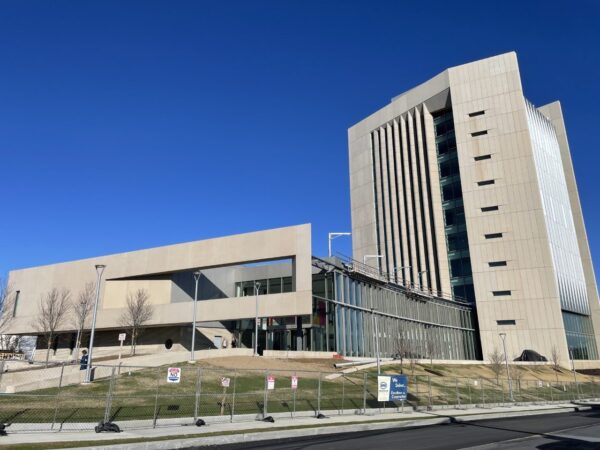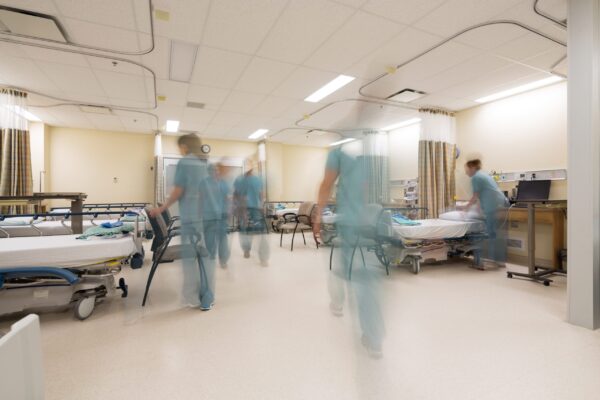

Hill International is hardly a newcomer to the healthcare industry in Spain with its long-standing relationship with the Madrid Regional Health System (SERMAS) that goes back to 2007. Evidence of that was in hand with the award of a contract this summer in connection with the setting up of a Control Technical Unit to provide operational monitoring services for 11 hospitals throughout the capital city of Madrid. Hill has already been supporting hospitals in Madrid by developing a methodology for the administration and monitoring of concession contracts under public-private partnership (PPP) schemes, in both the construction and operational phases of a project, said Jeffrey Sujar Blanco, Vice President and Managing Director for Western Europe with Hill International. The experience positioned the company as a premier consultant for this type of service within the industry, he added. The recent contract has an estimated value to Hill of nearly €2 million ($2.2 million) and also includes quality monitoring and compliance verification in relation to the availability of payment to the concessionaires that operate each of the 11 hospitals, Sujar said.
The award of the contract comes on the back of Hill developing over the last 10 years a highly specialised knowledge in monitoring the operation of hospitals built and managed following a PPP availability payment scheme, Sujar said, explaining it as payment to the concessionaire partially based on standard of service. “The payment mechanism itself establishes the framework for the organisation of the non-medical side of the hospital operation by defining in very high level details the required standards for every outsourced service that range from general maintenance to cleaning or security and in some cases even critical services such as sterilization, image diagnostics or clinical laboratories. The measurement of compliance is set through a series of complex KPIs, which Hill monitors intensely on a regular basis, becoming the eyes and ears of the public sector on site to ensure that they are receiving the correct service and the right standard from the concession companies throughout the more than 35 years of the concession period,” he elaborated.
Meanwhile, providing further details of Hill’s scope of works under its SERMAS contract, Sujar said the services to be offered in the Technical Control Unit also consist of technical assistance, economic-financial and legal aspects of the contract throughout the extent necessary for this kind of projects. “They include administrative law with administrative concessions experience, financial law and labor law, to name a few,” he said. “Besides, we will also be responsible for monitoring, assessment and evaluation of the requirements of the concession agreements, as well as monitoring support for correct and continuous operation of the non-health services, which must be provided by the 11 concessional entities, with regard to availability and quality of such services like cleaning, catering, security, garbage disposal, maintenance, roads and gardens, laundry, sterilization, decontamination and rat control, internal transport, storage, administrative staff and archive.” The Hill project team consists of 12 personnel headed by a project director and including technicians with engineering and law degree and hospital supervisors. “The team is based on professionals with a broad experience in managing construction projects, specifically hospitals, and extensive knowledge of the special features of operating sanitary facilities and the development of public concessional projects and production of PPP/PFI models,” Sujar said. The hospitals have been built with a total investment of over $1.2 billion and offer nearly 2,500 beds.
PPP leaves mark on Spain’s healthcare sector
PPP is also common projects in countries like the UK or Canada and in Spain they are an important innovation in the field of health management that is incorporated into the Plan of Health Infrastructure 2004-2007 for the community of Madrid. Availability-based PPP has become the most widespread funding mechanism for social infrastructure in developed countries in the OECD, Sujar said, adding this financing mechanism transfers construction and availability risks from the public sector to the private sector with the payment mechanism being based on the principle of making the facility available to the public sector meeting a project brief and operated to a specific standard. “In this environment, risk management at the operational stage becomes significantly more important than the design and construction process itself, given the duration and volume of services rendered by the concessionaires post-construction. Hill is in this field a global leader in managing this operational risk and is heavily involved in projects worldwide,” he said.
The new kind of concessional contract in Spain has created the need for administration of technical support to the Technical Control Unit for monitoring and evaluation of the services and commercial businesses in hospitals to ensure strict compliance with concessional contracts, Sujar said while enumerating the merits of Hill’s contract. Moreover, the legitimacy of public administration to citizens requires the establishment of this unit independently which promises transparency, efficiency, accountability and proper use of the means that society offers. Hill International is highly experienced in the development of similar projects, especially in the health sector, as well as other sectors like courts and police stations. In Spain, the company has offered its services for the Hospital of Burgos, Hospital of Toledo, Hospital of Cartagena, Hospital and residences of Badajoz, Hospital of Torrejon de Ardoz, Hospital Can Misses and Health Center Sant Josep de Talaia, Hospital Son Dureta, New Hospital in Vigo, Hospital Nou Clinic and refurbishment and extension of Hospital del Mar in Barcelona.
Hill’s success in providing technical support for the Technical Control Unit by administration in 2007 and its relationship with SERMAS resulted in an extension in the contract for two years and also the award of a new four-year contract subsequently. “Our performance is backed by renowned customer satisfaction and the actual fact is that all methodologies and procedures and monitoring and control tools being currently used have been provided by Hill,” Sujar said. During these nine years, SERMAS has been seeking Hill’s assistance in other proceedings in other services too that include: supervision of no health services contracts in the hospitals of Madrid Health Service that are managed centrally; to work in coordination with information systems general management for the design of a new IT platform for integration of service requests with incident records; and supporting SERMAS’ actions that are related to the concessional agreement of both institutional nature and media and/or political (inspections of government bodies and parliamentary claims). After many years of measuring data and witnessing the main issues affecting the correct operation of these extremely complex facilities, Hill has developed internal tools and procedures which have captured many high-value lessons learned. “We are working on a continuous improvement cycles with our client, incorporating best practices and lessons learned by cross-pollinating them across the portfolio,” Sujar said. Moreover, Hill Spain is currently advising healthcare investors internationally on greenfield projects at the early stages of their projects or during construction and commissioning, by means of transfer of knowledge KPIs, quality checks to design documents and monitoring of construction, commissioning and handover of new schemes. Given Hill International’s footing in Spain there are ample opportunities for the company’s relationship with the client to grow further. “The existing contract currently has a duration of three years, extendable to three more years, showing SERMAS’ commitment to the continuity of this service,” Sujar said.
SERMAS is the entity that integrates all the public hospitals and every public health service of the Madrid Regional Health System.
By Ashok Dutta
Share

April 11, 2024 | Articles
A Model Move: Managing Move-In at the Sylvia H. Rambo U.S. Courthouse

April 8, 2024 | Articles

April 4, 2024 | Articles
Driving Growth and Seizing Opportunity: Lukasz Marcinkiewicz Joins Hill as Country Manager, Poland

April 1, 2024 | Articles

March 27, 2024 | Articles
Building the Future: Women’s Leadership and Community Engagement in the Construction Industry

March 25, 2024 | Articles
Leveraging Data Analytics and Dashboards for Enhanced Project Performance

February 26, 2024 | Articles
Continuity, Creativity, and Collaboration: Delivering PennDOT’s Route 18 Signal Upgrade
We and use cookies and other tracking technologies to improve your experience on our website. We may store and/or access information on a device and process personal data, such as your IP address and browsing data, for personalised advertising and content, advertising and content measurement, audience research and services development. Additionally, we may utilize precise geolocation data and identification through device scanning.
Please note that your consent will be valid across all our subdomains. You can change or withdraw your consent at any time by clicking the “Consent Preferences” button at the bottom of your screen. We respect your choices and are committed to providing you with a transparent and secure browsing experience.
| Cookie | Duration | Description |
|---|---|---|
| cookielawinfo-checbox-analytics | 11 months | This cookie is set by GDPR Cookie Consent plugin. The cookie is used to store the user consent for the cookies in the category "Analytics". |
| cookielawinfo-checbox-functional | 11 months | The cookie is set by GDPR cookie consent to record the user consent for the cookies in the category "Functional". |
| cookielawinfo-checbox-others | 11 months | This cookie is set by GDPR Cookie Consent plugin. The cookie is used to store the user consent for the cookies in the category "Other. |
| cookielawinfo-checkbox-necessary | 11 months | This cookie is set by GDPR Cookie Consent plugin. The cookies is used to store the user consent for the cookies in the category "Necessary". |
| cookielawinfo-checkbox-performance | 11 months | This cookie is set by GDPR Cookie Consent plugin. The cookie is used to store the user consent for the cookies in the category "Performance". |
| viewed_cookie_policy | 11 months | The cookie is set by the GDPR Cookie Consent plugin and is used to store whether or not user has consented to the use of cookies. It does not store any personal data. |


